Latest News
U.S. general seeks greater powers in Afghanistan before exit
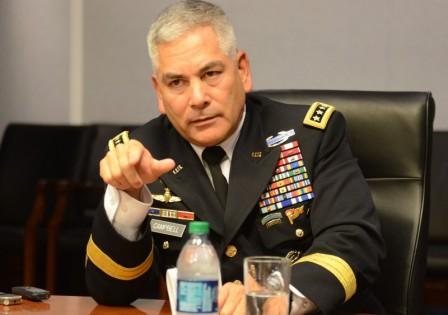
The U.S. general who until last week commanded the NATO-led coalition in Afghanistan said on Friday he recommended broader scope for U.S. military activity as the country fends off a resilient Taliban insurgency.
Army General John Campbell declined to disclose the specific powers he requested from President Barack Obama’s administration before he stepped down as part of a normal leadership transition. But he expressed a sense of urgency, “otherwise it’s not going to impact” the war in 2016.
“I’m not going to get more people. So the only way that I can impact is potentially change some of the authorities we have. So authorities deal with: what you can strike, what you can’t strike, at what levels you can do train, advise, assist,” Campbell told a group of reporters at the Pentagon.
“So I’ve asked for some modifications.”
The incoming commander, General John Nicholson, will also get to weigh in on the matter, Campbell said.
Campbell acknowledged frustrations over the lengthy bureaucratic process behind decision-making in Washington, something other Pentagon chiefs, including Obama’s three past defense secretaries, have also noted.
“But I would tell you with President Obama – every time I would get to the president, I got the decision I was really looking for,” he said.
Since Campbell’s arrival in Afghanistan in 2014, Obama has rolled back some of his drawdown plans as Taliban militants made gains, Islamic State established a nascent presence and casualties increased among Afghan security forces.
The Obama administration also gave U.S. forces broader authority to hit Islamic State fighters in Afghanistan, who Campbell said probably numbered closer to 1,000 than 3,000 fighters.
Campbell’s successor, Nicholson, inherits a conflict that is testing Afghan security forces and the roughly 13,000 international troops who remain, with insurgents contesting or controlling as much as a third of Afghanistan.
U.S. rules for engagement are far more limited in Afghanistan since NATO ended its combat mission in 2014.
Campbell acknowledged that even with new authorities, much would come down to the performance of Afghan forces, who he said needed to continue to come off checkpoints and become more maneuverable as they seek to push back the Taliban.
“We could have all the authorities we want. If the Afghans aren’t doing what they need to do, it’s not going to make a difference,” he said, even as he lauded their efforts so far.
Published by: Reuters

Latest News
IEA rejects Russia’s claims of foreign militants in Afghanistan
He further called on Russian authorities to reassess their understanding of the situation in Afghanistan and to update their reports based on objective facts on the ground.
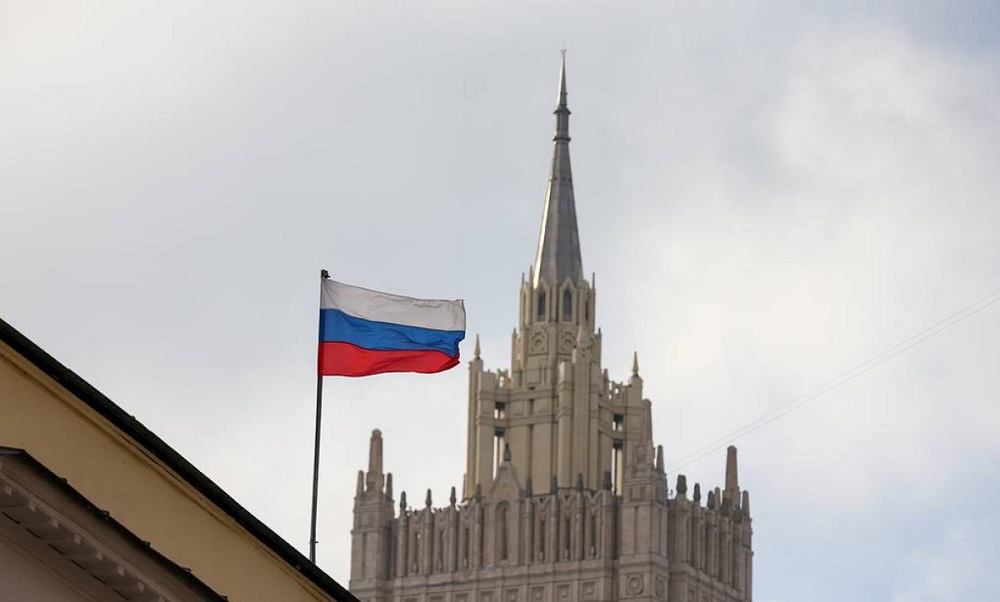
The Islamic Emirate of Afghanistan (IEA) has strongly rejected recent claims by Russia regarding the presence of international terrorist groups inside Afghanistan, calling the allegations unfounded and based on inaccurate information.
Speaking on the issue, Zabihullah Mujahid, the spokesperson of the Islamic Emirate, said Afghanistan is fully secure and no foreign armed groups are operating within the country.
He stressed that the entire territory of Afghanistan is under a single authority, leaving no space for external groups to carry out activities.
“We regret that such claims are made from sources in Russia,” Mujahid said, adding that these allegations date back to the past, including the period of the U.S. occupation, and have no basis in current realities. “We categorically reject these assertions.”
He further called on Russian authorities to reassess their understanding of the situation in Afghanistan and to update their reports based on objective facts on the ground.
Latest News
Escalating violence in Pashtun regions during Ramadan raises concerns
He described these incidents as grave violations of international law and acts that have deepened fears among affected communities.

Amid the holy month of Ramadan, violence has continued in several Pashtun areas, raising serious concerns among local communities.
In a post in X, Manzoor Ahmad Pashteen, the founder and head of Pashtun Tahafuz Movement, noted that in Tirah, four Pashtun civilians were reportedly killed and six others injured during operations carried out by the Pakistani army. Protests that followed in Orakzai were also met with force, leaving four more individuals seeking peace and justice injured.
In Afghanistan’s Behsud district, 17 civilians, including women and children, were reportedly killed in airstrikes attributed to Pakistani forces, he stated.
He described these incidents as grave violations of international law and acts that have deepened fears among affected communities.
In recent days, additional casualties have been reported in Rozmak, Shawal (North Waziristan), Mubarak Shahi village (Mir Ali), Speen Wam, Abakhel village, Dosali, Takhte Khel (Lakki Marwat), Azam Warsak (South Waziristan), Bajaur, and Bannu, where clashes between security forces and armed groups have resulted in deaths and injuries among civilians, Pashteen said.
He stated that the ongoing violence reflects longstanding grievances in Pashtun regions. The Pashtun Tahafuz Movement (PTM) has stated that it will continue to oppose what it describes as injustices against Pashtun communities and will stand in solidarity with those affected.
Latest News
UNAMA reports civilian casualties from Pakistani airstrikes in Afghanistan
UNAMA urged all parties to end hostilities, protect civilians, and uphold international law principles of distinction, proportionality, and precaution to prevent further civilian harm.
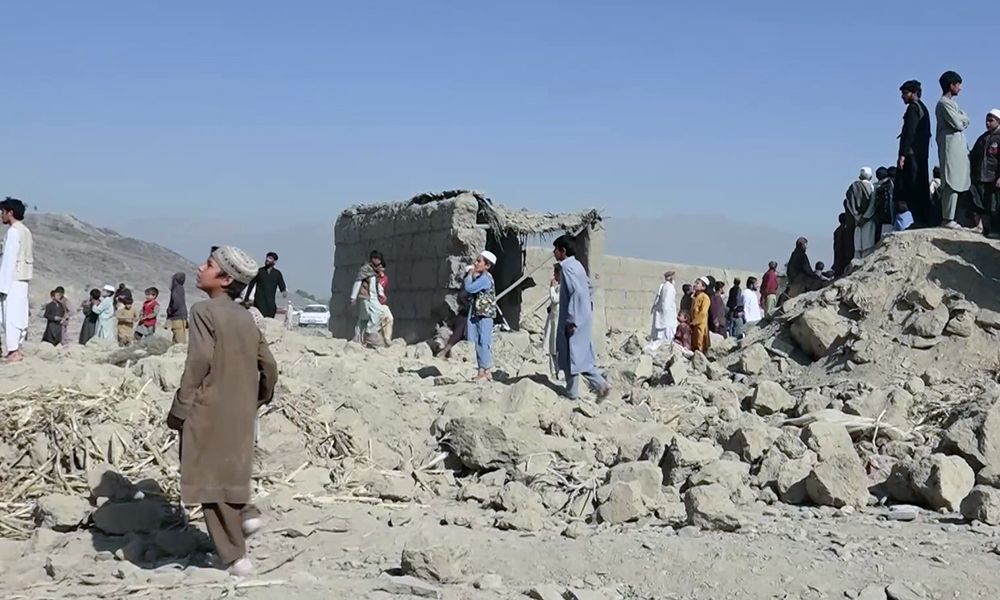
The United Nations Assistance Mission in Afghanistan (UNAMA) has confirmed credible reports of civilian casualties following overnight Pakistani airstrikes inside Afghanistan on 21–22 February.
Airstrikes in Behsud and Khogyani districts of Nangarhar province, carried out between approximately 23:45 on 21 February and 00:15 on 22 February, have reportedly killed at least 13 civilians and injured seven others, including women and children.
Pakistani forces also struck Barmal and Urgun districts in Paktika province.
In Barmal’s Marghai area, an airstrike on 21 February around 23:15 hit a madrassa and partially damaged a nearby mosque.
In Urgun’s Dahna area, an airstrike at approximately 23:30 partially destroyed a vacant private residence. No civilian casualties have been reported from these strikes.
UNAMA urged all parties to end hostilities, protect civilians, and uphold international law principles of distinction, proportionality, and precaution to prevent further civilian harm.
-
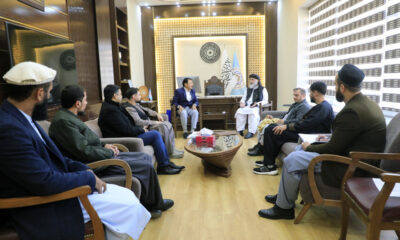
 Latest News4 days ago
Latest News4 days agoAfghanistan welcomes investment and technology partnerships with India
-

 Sport4 days ago
Sport4 days agoAfghan Peaks founder climbs Aconcagua to promote Afghanistan’s mountain potential
-

 Latest News3 days ago
Latest News3 days agoIndian customs seize Chinese walnuts falsely declared as Afghan
-

 Business4 days ago
Business4 days agoPakistan allows re-export of stranded Afghan transit cargo
-
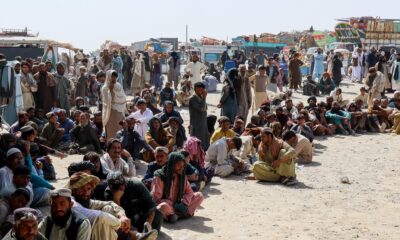
 Latest News3 days ago
Latest News3 days agoPakistan’s Punjab to send home 20 more Afghans in repatriation drive
-

 Latest News4 days ago
Latest News4 days agoPakistan signals possible air strikes as Kabul releases Pakistani soldiers in goodwill move
-

 Latest News2 days ago
Latest News2 days agoMoldova bans Afghan airlines over safety concerns
-
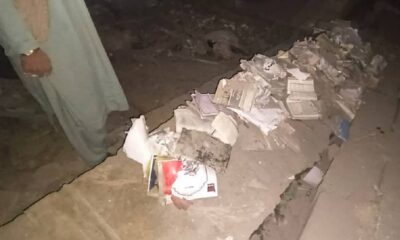
 Latest News2 days ago
Latest News2 days agoAfghanistan vows retaliation after Pakistan launches air strikes















